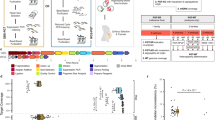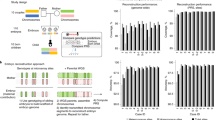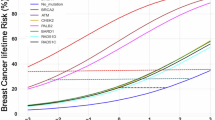Abstract
Preimplantation genetic diagnosis (PGD) for monogenic disorders currently involves polymerase chain reaction (PCR)-based methods, which must be robust, sensitive and highly accurate, precluding misdiagnosis. Twelve adverse misdiagnoses reported to the ESHRE PGD-Consortium are likely an underestimate. This retrospective study, involving six PGD centres, assessed the validity of PCR-based PGD through reanalysis of untransferred embryos from monogenic-PGD cycles. Data were collected on the genotype concordance at PGD and follow-up from 940 untransferred embryos, including details on the parameters of PGD cycles: category of monogenic disease, embryo morphology, embryo biopsy and genotype assay strategy. To determine the validity of PCR-based PGD, the sensitivity (Se), specificity (Sp) and diagnostic accuracy were calculated. Stratified analyses were also conducted to assess the influence of the parameters above on the validity of PCR-based PGD. The analysis of overall data showed that 93.7% of embryos had been correctly classified at the time of PGD, with Se of 99.2% and Sp of 80.9%. The stratified analyses found that diagnostic accuracy is statistically significantly higher when PGD is performed on two cells versus one cell (P=0.001). Se was significantly higher when multiplex protocols versus singleplex protocols were applied (P=0.005), as well as for PGD applied on cells from good compared with poor morphology embryos (P=0.032). Morphology, however, did not affect diagnostic accuracy. Multiplex PCR-based methods on one cell, are as robust as those on two cells regarding false negative rate, which is the most important criteria for clinical PGD applications. Overall, this study demonstrates the validity, robustness and high diagnostic value of PCR-based PGD.
Similar content being viewed by others
Log in or create a free account to read this content
Gain free access to this article, as well as selected content from this journal and more on nature.com
or
References
SenGupta SB, Delhanty JD : Preimplantation genetic diagnosis: recent triumphs and remaining challenges. Expert Rev Mol Diagn 2012; 12: 585–592.
Fiorentino F : Molecular genetic analysis of single cells. Semin Reprod Med 2012; 30: 267–282.
Harper JC, Wilton L, Traeger-Synodinos J et al: The ESHRE PGD Consortium: 10 years of data collection. Hum Reprod Update 2012; 18: 234–247.
Wilton L, Thornhill A, Traeger-Synodinos J, Sermon KD, Harper JC : The causes of misdiagnosis and adverse outcomes in PGD. Hum Reprod 2009; 24: 1221–1228.
Augst C : Regulating dangerous futures: the German Embryo Protection Act of 1990—legislation in risk society. Soc Leg Stud 2000; 9: 205–226.
Benohr-Laqueur S : Fighting in the legal grey area: an analysis of the German Federal Court of Justice decision in case preimplantation genetic diagnosis. Poiesis Prax 2011; 8: 3–8.
Harton GL, De Rycke M, Fiorentino F et al: ESHRE PGD consortium best practice guidelines for amplification-based PGD. Hum Reprod 2011; 26: 33–40.
Harton GL, Harper JC, Coonen E, Pehlivan T, Vesela K, Wilton L : ESHRE PGD consortium best practice guidelines for fluorescence in situ hybridization-based PGD. Hum Reprod 2011; 26: 25–32.
Harton GL, Magli MC, Lundin K, Montag M, Lemmen J, Harper JC : ESHRE PGD Consortium/Embryology Special Interest Group – best practice guidelines for polar body and embryo biopsy for preimplantation genetic diagnosis/screening (PGD/PGS). Hum Reprod 2011; 26: 41–46.
Alpha Scientists in Reproductive, M., E.S.I.G.o. Embryology: The Istanbul consensus workshop on embryo assessment: proceedings of an expert meeting. Hum Reprod 2011; 26: 1270–1283.
Dreesen J, Drusedau M, Smeets H et al: Validation of preimplantation genetic diagnosis by PCR analysis: genotype comparison of the blastomere and corresponding embryo, implications for clinical practice. Mol Hum Reprod 2008; 14: 573–579.
Bielanska M, Jin S, Bernier M, Tan SL, Ao A : Diploid-aneuploid mosaicism in human embryos cultured to the blastocyst stage. Fertil Steril 2005; 84: 336–342.
Bielanska M, Tan SL, Ao A : Chromosomal mosaicism throughout human preimplantation development in vitro: incidence, type, and relevance to embryo outcome. Hum Reprod 2002; 17: 413–419.
van Echten-Arends J, Mastenbroek S, Sikkema-Raddatz B et al: Chromosomal mosaicism in human preimplantation embryos: a systematic review. Hum Reprod Update 2011; 17: 620–627.
Mertzanidou A, Wilton L, Cheng J et al: Microarray analysis reveals abnormal chromosomal complements in over 70% of 14 normally developing human embryos. Hum Reprod 2012; 28: 256–264.
Fiorentino F, Biricik A, Nuccitelli A et al: Strategies and clinical outcome of 250 cycles of preimplantation genetic diagnosis for single gene disorders. Hum Reprod 2006; 21: 670–684.
Altarescu G, Brooks B, Kaplan Y et al: Single-sperm analysis for haplotype construction of de-novo paternal mutations: application to PGD for neurofibromatosis type 1. Hum Reprod 2006; 21: 2047–2051.
Altarescu G, Eldar-Geva T, Varshower I et al: Real-time reverse linkage using polar body analysis for preimplantation genetic diagnosis in female carriers of de novo mutations. Hum Reprod 2009; 24: 3225–3229.
Renwick P, Ogilvie CM : Preimplantation genetic diagnosis for monogenic diseases: overview and emerging issues. Expert Rev Mol Diagn 2007; 7: 33–43.
Renwick P, Trussler J, Lashwood A, Braude P, Ogilvie CM : Preimplantation genetic haplotyping: 127 diagnostic cycles demonstrating a robust, efficient alternative to direct mutation testing on single cells. Reprod Biomed Online 2010; 20: 470–476.
Renwick PJ, Trussler J, Ostad-Saffari E et al: Proof of principle and first cases using preimplantation genetic haplotyping – a paradigm shift for embryo diagnosis. Reprod Biomed Online 2006; 13: 110–119.
De Vos A, Staessen C, De Rycke M et al: Impact of cleavage-stage embryo biopsy in view of PGD on human blastocyst implantation: a prospective cohort of single embryo transfers. Hum Reprod 2009; 24: 2988–2996.
Haapaniemi Kouru K, Malmgren H, Nordenskjold M, Fridstrom M, Csemiczky G, Blennow E : One-cell biopsy significantly improves the outcome of preimplantation genetic diagnosis (PGD) treatment: retrospective analysis of 569 PGD cycles at the Stockholm PGD centre. Hum Reprod 2012; 27: 2843–2849.
Acknowledgements
The authors would like to thank Dr Leeanda Wilton for her valuable advice on the manuscript. Furthermore we would like to thank all the research and clinical staff in all the PGD centres for their technical assistance.
Author information
Authors and Affiliations
Corresponding author
Ethics declarations
Competing interests
The authors declare no conflict of interest.
Rights and permissions
About this article
Cite this article
Dreesen, J., Destouni, A., Kourlaba, G. et al. Evaluation of PCR-based preimplantation genetic diagnosis applied to monogenic diseases: a collaborative ESHRE PGD consortium study. Eur J Hum Genet 22, 1012–1018 (2014). https://doi.org/10.1038/ejhg.2013.277
Received:
Revised:
Accepted:
Published:
Issue date:
DOI: https://doi.org/10.1038/ejhg.2013.277
Keywords
This article is cited by
-
Acceptable, hopeful, and useful: development and mixed-method evaluation of an educational tool about reproductive options for people with sickle cell disease or trait
Journal of Assisted Reproduction and Genetics (2022)
-
Development and clinical application of a preimplantation genetic testing for monogenic disease (PGT-M) for beta thalassemia in Vietnam
Journal of Assisted Reproduction and Genetics (2021)
-
Literacy assessment of preimplantation genetic patient education materials exceed national reading levels
Journal of Assisted Reproduction and Genetics (2020)
-
The decision-making process, experience, and perceptions of preimplantation genetic testing (PGT) users
Journal of Assisted Reproduction and Genetics (2020)
-
Chromosome screening using culture medium of embryos fertilised in vitro: a pilot clinical study
Journal of Translational Medicine (2019)



